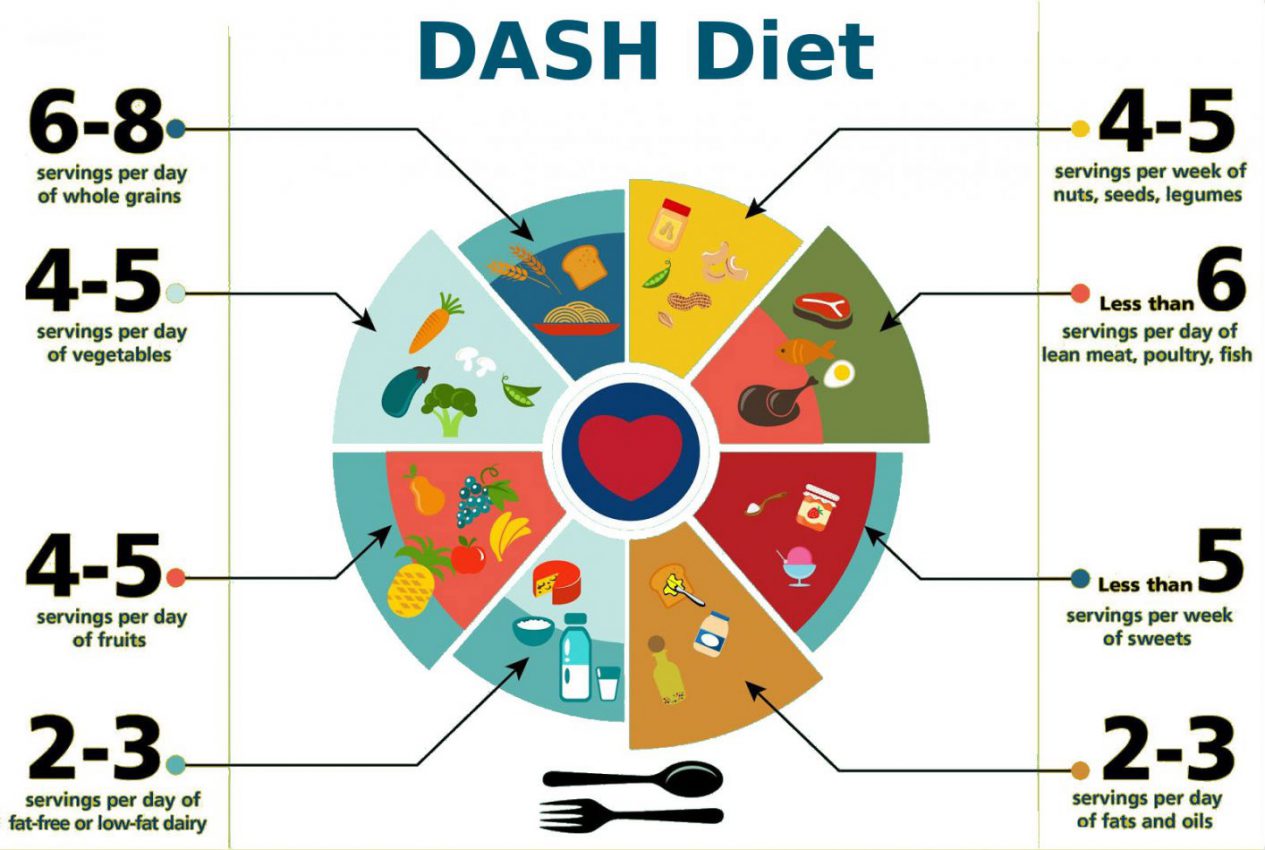In January 2019 researchers from Thailand published the results of their study to assess the effect of the Dietary Approaches to Stop Hypertension (DASH) diet on reducing the risk of … Read more
The DASH dietary pattern is associated with a decreased incidence of cardiovascular disease and improves blood pressure and other cardiometabolic risk factors in individuals with and without diabetes type 2
In February 2019 researchers from Canada, Croatia, Czech Republic, USA and Spain published their review of the medical scientific literature to assess the association between the Dietary Approaches to Stop … Read more
A single session of Pilates appears to reduce systolic blood pressure levels by approximately 5-8 mmHg in middle-aged individuals with hypertension during the first 60 minutes of post-exercise recovery
In January 2019 researchers from Brazil and the USA published the results of their study to assess blood pressure levels and heart rate variability following a single session of Pilates … Read more
A higher consumption of carbonated sugar-sweetened beverages appears to increase the risk of hypertension
In June 2017 researchers from Korea published the results of their study to assess the association between consumption of carbonated sugar-sweetened beverages and hypertension. A total of 9,869 subjects (3,845 … Read more
Regular sauna usage appears to be associated with a reduced risk of hypertension
In November 2017 researchers from the UK, Finland and Austria published the results of their study to assess the association between sauna usage and risk of hypertension. A total of … Read more
High-intensity interval training and moderate-intensity continuous training produce comparable reductions in resting blood pressure in individuals with pre- or established hypertension
In September 2018 researchers from Brazil and Canada published their review of the medical scientific literature to assess the effectiveness of high-intensity interval training and moderate-intensity continuous training to reduce … Read more
Yoga appears to reduce the severity of depression and diastolic blood pressure of women with premenstrual syndrome who suffer from depression
In February 2019 researchers from Iran and South Africa published the results of their study to assess the effect of yoga on women with premenstrual syndrome who suffered from depression. … Read more
Yoga appears to produce a short-term reduction in systolic blood pressure
In December 2018 researchers from Germany published the results of their study to assess the effect of yoga, with and without yoga postures, on hypertension. A total of 75 patients … Read more
Red meat, processed meat, fish and sugar-sweetened beverages increase the risk of hypertension whilst whole grains, fruits, nuts, legumes and dairy reduce the risk
In May 2017 researchers from Germany and Austria published their review of the medical scientific literature to assess the relationship between the consumption of 12 major food groups and risk … Read more
Metabolic syndrome
Metabolic syndrome is a group of medical conditions that occur together, namely increased blood pressure, high blood sugar, excess body fat around the waist, and abnormal cholesterol or triglyceride levels. … Read more
Flavanol-rich chocolate and cocoa products may produce a small reduction in blood pressure levels
In April 2017 researchers from Australia published their review of the scientific literature to assess the effect of chocolate and cocoa products on blood pressure levels. A total of 35 … Read more
High flavanol chocolate improves arterial function and working memory in individuals suffering from sleep deprivation
In July 2016 researchers from Italy published the results of their study to assess the effect of flavanol-rich chocolate on cognitive skills and cardiovascular parameters in 32 individuals suffering from … Read more
Circadian rhythm
Circadian disruption has been classified as probably carcinogenic to humans by the World Health Organization’s International Agency for Research on Cancer. So what is it?
The circadian clock is the … Read more
Air pollution appears to significantly increase blood pressure levels and risk of hypertension
In April 2018 researchers from China and the USA published the results of their review of the scientific literature to assess the association between air pollution and blood pressure levels. … Read more
Probiotic and synbiotic supplementation improves symptoms associated with the metabolic syndrome in pre-diabetics
In July 2018 researchers from Iran published the results of their study to assess the effects of probiotics and synbiotics on the metabolic syndrome. 120 adults with prediabetes were divided … Read more
Red-fleshed sweet orange juice appears to reduce the risk of metabolic syndrome
In July 2015 researchers from Brazil published the results of their study to assess the effect of red orange juice, consumed for an 8-week period, on risk factors for metabolic … Read more
Yoga may reduce high blood pressure levels
In March 2014 researchers from Australia published their review of the scientific literature to assess the effect of yoga on high blood pressure levels. A total of 78 studies and … Read more
DASH diet* turns 21 in 2018 – scientifically proven to lower blood pressure levels and cholesterol, plus reduces the risk of several types of cancer, heart disease, stroke, heart failure, kidney stones, diabetes type 2, depression and even slow the progression of kidney disease
In April 1997 researchers from the USA published the results of their study to assess the effect of dietary patterns on blood pressure levels. 459 adults with systolic blood pressures … Read more
Higher total dairy intake, especially yoghurt, appears to reduce the risk of high blood pressure
In August 2018 researchers from the USA published the results of their study to assess the association between yoghurt, cheese and milk consumption and high blood pressure levels. 184,178 middle-aged … Read more
Three cups of coffee per day reduces the risk of hypertension in an Asian population but a higher intake appears to increase the risk
In June 2018 researchers from the USA and Singapore published the results of their study to assess whether coffee or tea was associated with the risk of hypertension in an … Read more




















